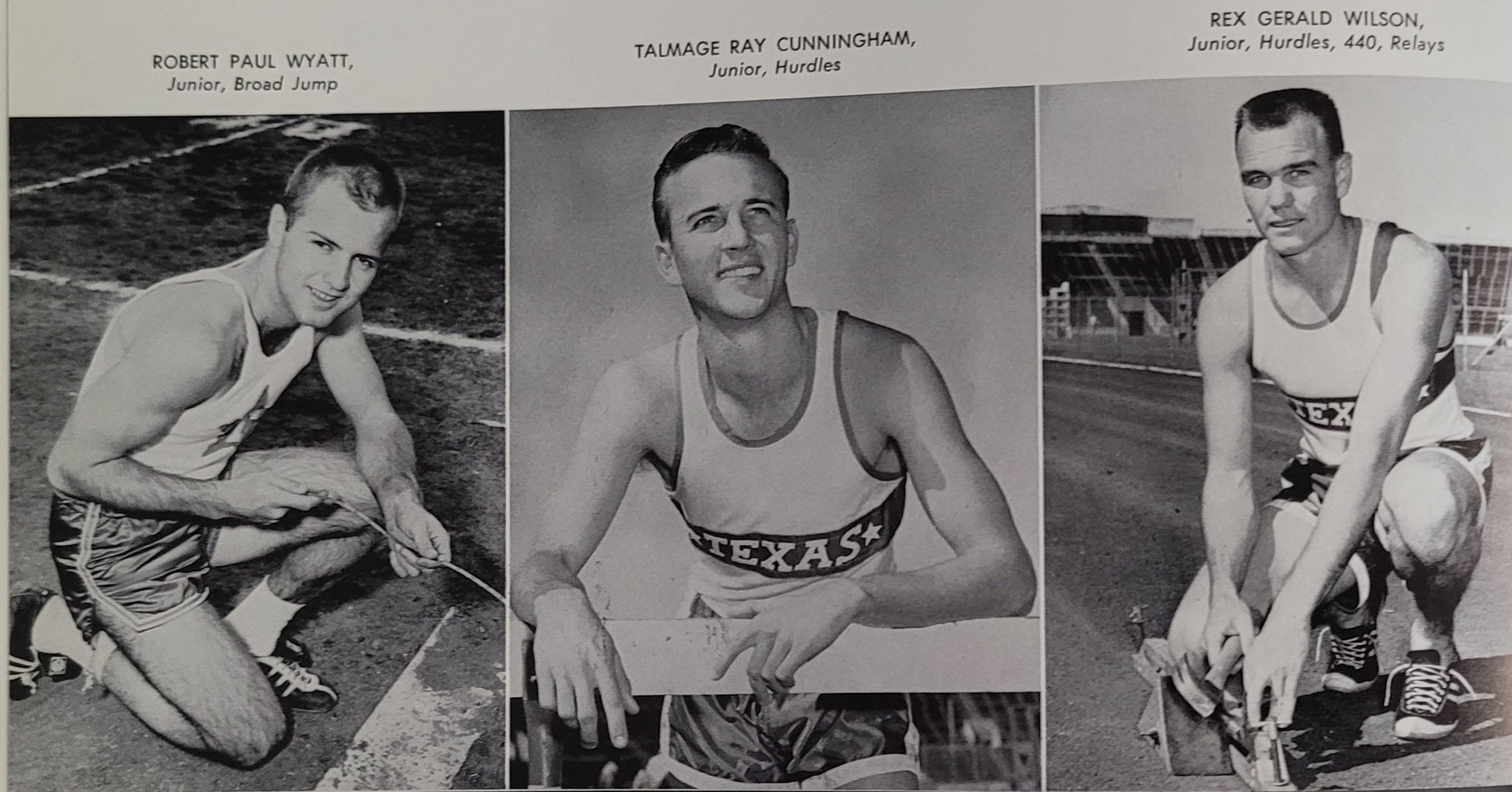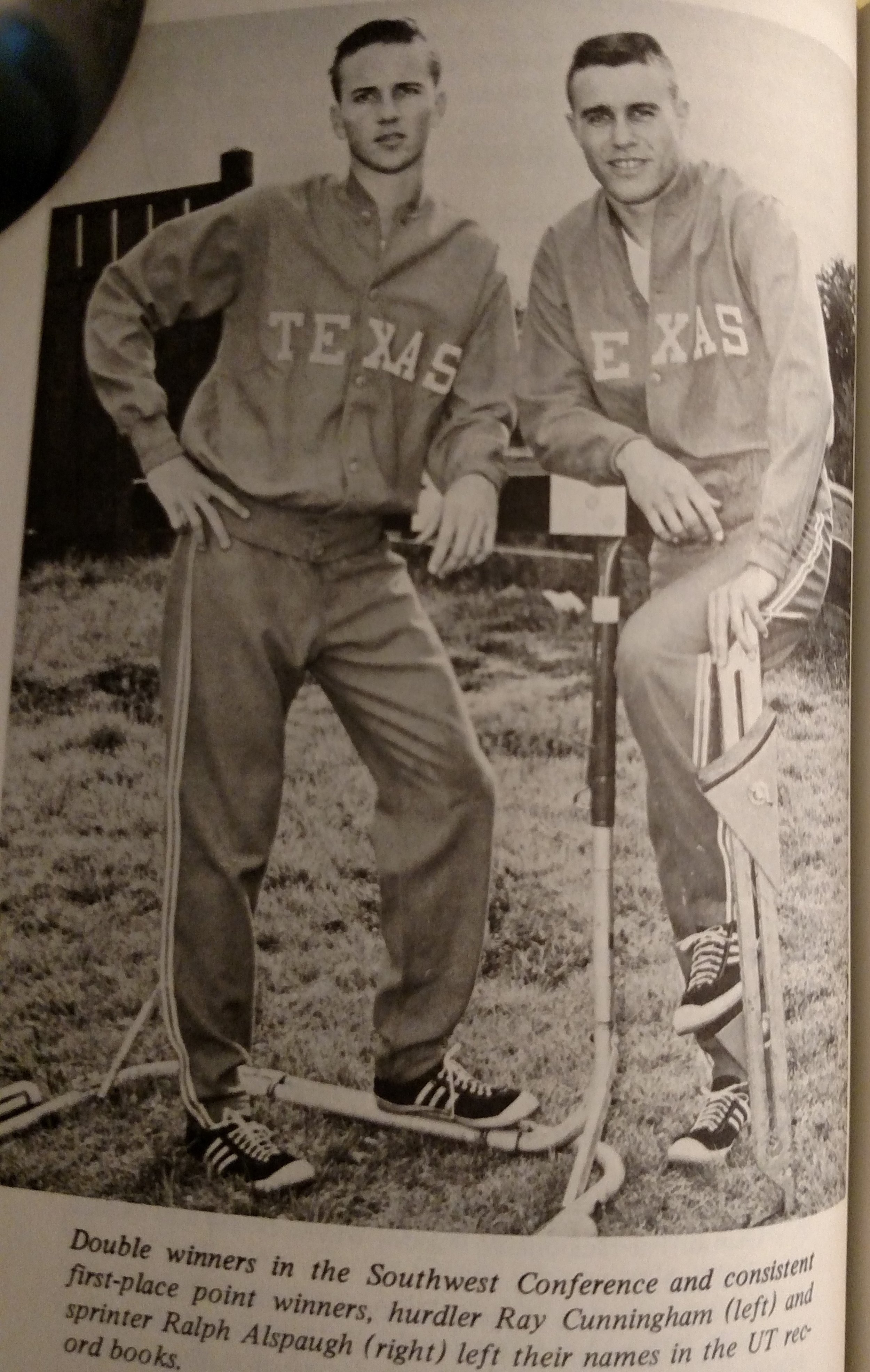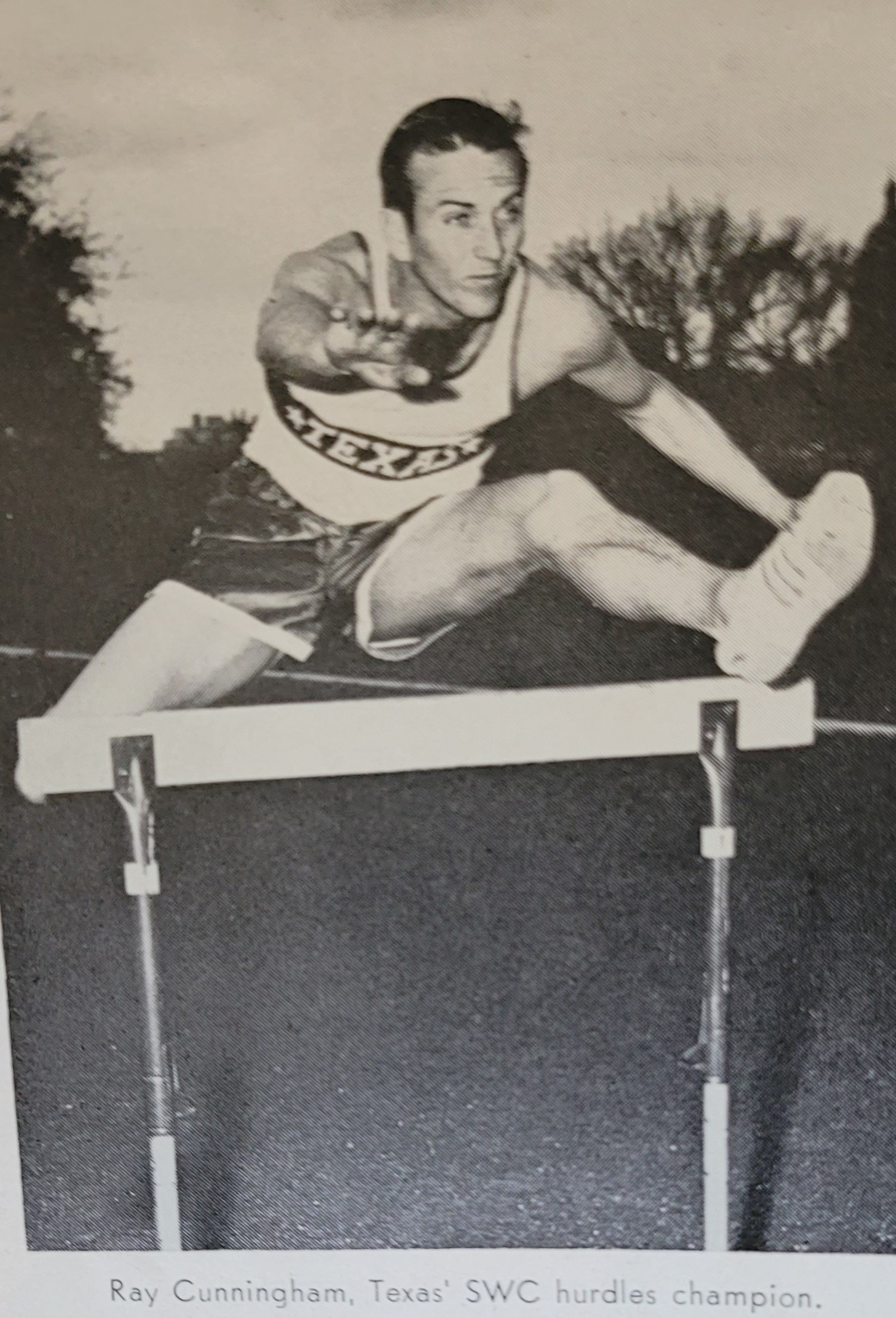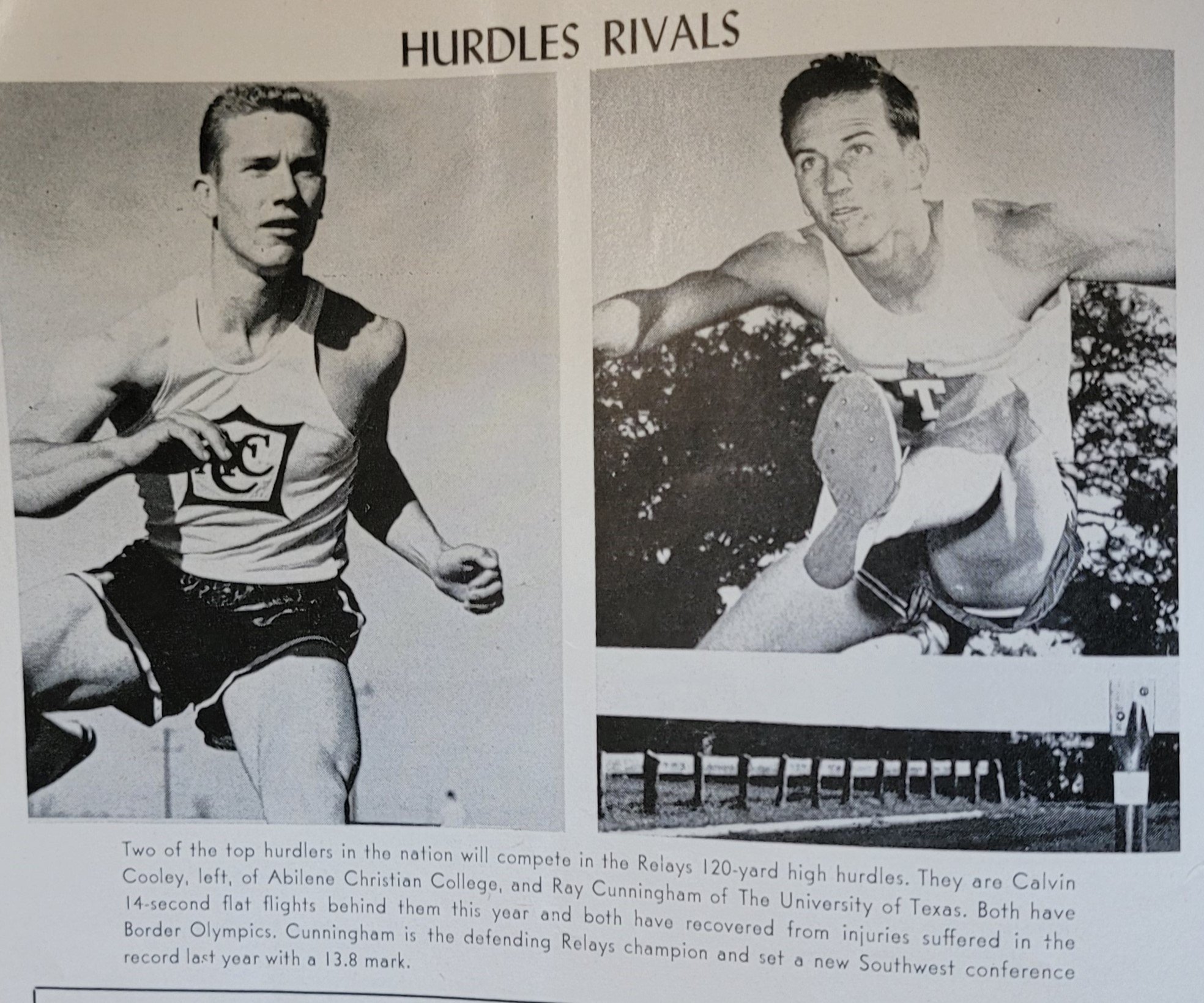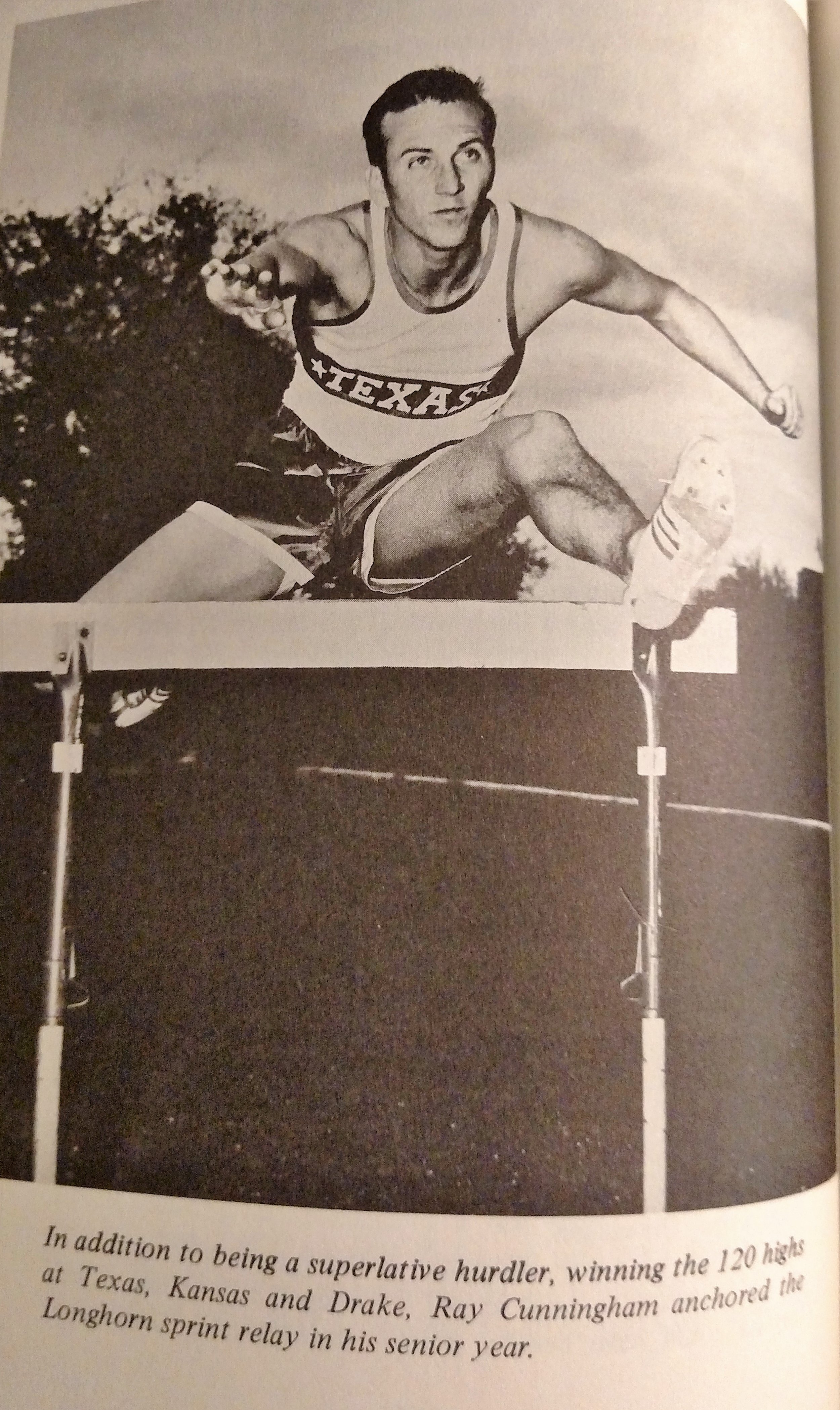(Author Carlton Stowers was a member of that '62 Longhorns sprint relay who also reported on meets as a sportswriter for The Daily Texan. Today, he is a member of the Texas Literary Hall of Fame.)I have asked Carlton Stowers occasionally to write articles about Longhorn track and field, and he said he would do so for TLSN.
Here is his first story about hurdler Ray Cunningham.
HOMAGE TO A HURDLER
It is much the same with most of us old spit-and-whittlers who spend far too much time looking over tired and bent shoulders.
Who was the best athlete you ever saw? Your best team? What event ranks No. 1 in your memory?
All dandy ingredients for nostalgic conversation. My personal favorite, however, goes to athletes with the highest degree of competitive drive.
Among my all-time favorites was U.T. teammate Ray Cunningham. When he stepped to the starting line to run the 120-yard high hurdles, there was no question in his mind who would reach the finish line first.
Goodness only knows how good he might have been had he paid more attention to training rules. For example, When, as a junior in the spring of 1961, he was waiting for a slightly strained muscle to heal, he was told by legendary trainer Frank Medina that he was to walk daily from Round Rock back to the campus. As soon as Media dropped him off in the middle of nowhere, Ray would put out his thumb. He learned quickly that passersby were willing to give a young hitchhiker wearing an orange sweatsuit a ride. Ray, friendly and always polite, would thank the driver and ask if he minded if he smoked.
As the decade of the '60s arrived on the Forty Acres, the gold medal speed of the likes of Eddie Southern, Hollis Gainey, and Ralph Alspaugh were history, and the heroics of sub-four-minute miler Richard Romo and distance relays were well in the future.
It was a time when the Longhorns track and field team was transitioning from famed head coach Clyde Littlefield to newly-elevated assistant T.J. (Froggie) Lovvorn. And if it was to have a new star, the responsibility would fall on the shoulders of a free-spirited youngster from Refugio.
Cunningham stepped up in dramatic fashion.
Already the defending Southwest Conference and Texas Relays champion in his specialty, he reached new heights as a senior in '62. The season started with a bang.
Running the 60-yard high hurdles in the first-ever indoor season in the state's history, he posted a best of 7.1, just one-tenth of a second over the recognized world indoor record. He then launched his outdoor campaign with an easy victory in the annual invitation-only Sugar Bowl meet in New Orleans. He then earned a rare triple crown title, winning his specialty at the Texas, Kansas, and Drake Relays. At the West Texas Relays in Odessa, he posted the nation's fastest time of 13.7, handily defeating constant rivals Bobby Barnard of TCU and Bob Swafford of Texas Tech.
And while Barnard later won an eyelash high hurdles victory over him in the SWC championships, Cunningham easily won the 220-yard low hurdles title for the consecutive year.
As a senior, he assumed another role, anchoring the 'Horns 440-yard relay, which posted a season-best of 40.9, ranking it among the NCAA's top 10. Though he had never run on a relay prior to his senior year, he fared well against some of the premier sprinters who were anchoring their respective teams. Litt6lefield, who earned a great reputation as a coach of world-class sprinters, including Olympian Dean Smith, once observed that had Cunningham concentrated on the dashes, he could have been outstanding.
Though he had arrived at Texas as a well-kept secret after missing the opportunity to participate in the schoolboy state meet as a Refugio High senior due to a broken shoulder, the Longhorns had their next track and field star. It was a status the six-foot, 150-pounder had been building toward since he arrived on campus.
Swafford, the Tech honorable mention All-American who competed against the Texas star throughout his collegiate career, was never able to defeat him. "He was incredible, such a smooth, almost effortless runner that he seemed to almost float over the hurdles," he says. "And, yes, he was a fierce competitor."



